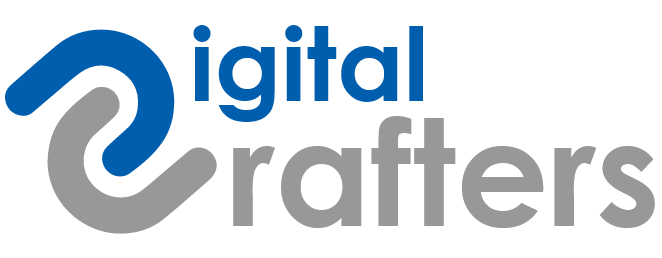
ERP software connects and defines a variety of corporate processes while also allowing data to move between them. Data duplication is eliminated and data integrity is ensured using an ERP system. An Enterprise Resource Planning system, at its most basic level, combines numerous components into a single system to streamline procedures and information throughout the entire firm. You can manage small and medium-sized businesses, as well as enterprises, across industries, with ERP software.
ERP software is a powerful and strategic tool for managing corporate processes. It can be used to keep track of data within a corporation. Across all aspects of a business, an ERP system provides intelligence, visibility, analytics, and efficiency. The flow of real-time data is also facilitated by ERP technology. ERP software can also help you automate your fundamental company activities.
An ERP system is built on a well-defined data structure and, in most cases, a single database. Using similar components, definitions, and user experiences, an Enterprise Resource Planning system enables access to company data from diverse activities. ERP software includes programs and technologies that make it easier for all parts of a company to connect with one another.
For their specialized needs, employees in planning and scheduling, for example, have access to the same data as those in financial management. All data is available in real time, allowing employees to make faster and more informed business choices. All critical business operations (estimating, production, finance, human resources, marketing, sales, and purchasing) share a single source of up-to-date information using ERP software.
ERP systems come in a wide range of sizes, scopes, and features. The majority of ERP software, on the other hand, has the following features:
End-to-end integration of business processes is achieved across departments and business units. A new order, for example, triggers a credit check, a product availability query, and a change to the distribution schedule. The invoice is emailed once the order has been shipped.
Problems are recognized immediately, providing the seller more time to rectify the situation, because the operations in the example above occur within a few seconds of order receipt.
With a shared database, data can be defined once for the entire company, and every department can use the same definition. To boost performance, several ERP systems partition the physical database.
Early ERP vendors recognized that software with an uniform user interface saves money on training and improves a company's image. When an ERP company acquires other software, the common look and feel is sometimes sacrificed in favor of speed to market. Most ERP providers restore the consistent user interface as new releases hit the market.
Operations rely on Enterprise Resource Planning (ERP) systems to manage their businesses more than ever before, from back-end functions like HR and finance to front-end functions like marketing automation and eCommerce.
As a result, software systems like NetSuite ERP and Microsoft Dynamics ERP evolve year after year to embrace newer technologies, more capabilities, and capitalize on current trends. To stay ahead of the competition, it's vital that your company keeps up with the latest technological breakthroughs.
The four main ERP trends to watch in 2022 and beyond are listed below –
By 2022, we predict one-size-fits-all ERP solutions to be a thing of the past, as trends move toward more individualized solutions for enterprises. Today's ERP systems, such as NetSuite and Microsoft Dynamics, include features to assist in the creation of individualized experiences. We expect ERP solutions will have a more complete, personalized user interface in the coming year and beyond, allowing them to become more consumer-centric and accessible. ERP solutions will be able to effortlessly connect with new technologies like AI in the next few years, potentially changing the ERP landscape by establishing new processes.
In 2022, complete mobile support will be one of the core elements of a modern ERP application, replacing the days when a solution was tethered to a single workstation. Mobile support not only provides on-the-go data connectivity, but it also provides other benefits such as:
1. The ability to conduct business at any time and from any location.
2. Because of the emergence of remote working, employees can now do back-end and front-end tasks from anywhere.
3. Encourages remote teams and workers in different time zones to collaborate. Team communication is improved and delays are avoided with mobile support.
Businesses profit greatly from having access to real-time data. Team members use real-time analytics to increase their operations' flexibility and agility, and it's essential for real-time performance insights and logistical management. It's no wonder that real-time data insights are becoming a standard element of ERP systems. Businesses rely on up-to-date and reliable data. As a result, ERP systems are focusing more on offering tools for enterprises to collect reliable data in real time. But it's not just about gathering information. By smoothly transmitting all essential data across all divisions, real-time analytics can assist in maintaining a smooth business operation. We anticipate a greater emphasis on support for real-time data insights in 2022, to assist your organization in making wise decisions.
While some historical systems may collect and organize data, they lack the robust data analytics capabilities of ERP systems such as NetSuite and Microsoft Dynamics. More tools, data visualization, and integrated analytics capabilities are expected in 2022 to aid your company in making data-driven decisions and forecasting future trends.
Every year, ERP systems improve and change the way we conduct business. With more modern technology being added to ERP systems every year, staying ahead of the curve requires a focus on ERP installation. We can assist you with the implementation of NetSuite ERP or Microsoft Dynamics ERP. We specialize in system deployments and have the knowledge and experience to assist your company in growing.
To learn more about how we can assist you, contact our team of professionals now.
